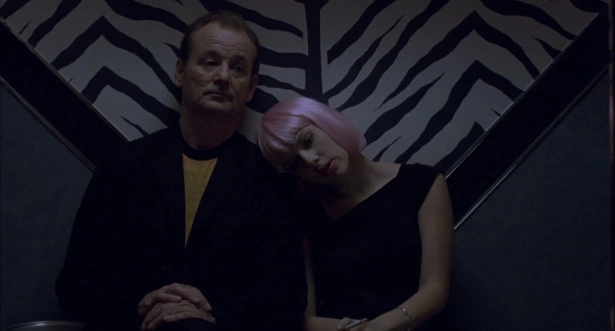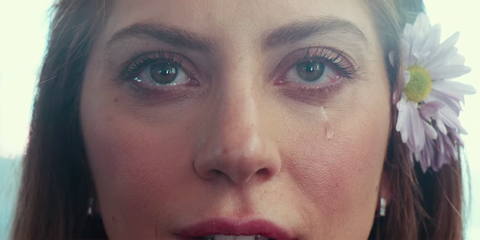How Lost in Translation Began Scarlett Johansson's Obsession with Becoming Japanese
Bill Murray and Scarlett Johansson in Lost in Translation
Disclaimer: This article is not meant to defame or denounce any of the people mentioned in it. It is simply for discussion purposes only, to lead to healthy debate rather than rude insults. This article was not written with malicious intent.
When the casting of the American-made live-action version of Ghost in the Shell was announced, it was met with a general disdain from the world of social media, particularly because of the casting of the main character, Major Motoko Kusanagi whose name was changed to Major Mila Killian so Johansson can fit in more, I assume. Major, a character who I'm sure you can tell is likely a Japanese character from a piece of Japanese media, was to be played by Scarlett Johansson, an actress who is, technically, white. As you can imagine, this upset and angered many people, not only Asian and Japanese communities but also fans of the original source material, as the film had taken the labors to cast other Japanese and Asian-American actors, but not for its lead. But this is not the first time that Johansson has been signed on to play a character that she simply does not fit the role of.
In the summer of 2018, Johansson was announced to be cast in Rub and Tug, in which she would play trans man Dante "Tex" Gill, a massage parlor owner that used his string of parlors for sex work. The announcement immediately resulted in backlash from many on the internet. Much like with Ghost in the Shell, Johansson tried to defend her casting, saying that she is simply an actor taking a role, and her casting was no different than trans actors cast as cisgender characters (if there are notable times where trans actors played cis characters and not vice versa please let me know). Her statement was even more widely panned than her initial casting announcement, and thus she left the project, leaving the film out of the public eye for the rest of the year.
Scarlett Johansson is the face of controversy to many, and it's not hard to see why. She is a face of whitewashing to many, the butt of whitewashing jokes from many on Twitter. But why has she taken these chances and these roles, fully knowing there might be a backlash to it? While there were some in Japan that found her casting as Major perfectly acceptable, the majority of consumers were displeased not only with her casting but with the film in general, which proved to be a major disappointment that has no reason existing when the original film is considered so flawless. It was the equivalent of remaking My Neighbor Totoro and casting Jojo Siwa in the lead role but surrounding her with Asian actors and trying to convince us she's related to them and fits in: it would serve no point, be terrible, and cause controversy that nobody asked for.
Scarlett Johansson in a poster for Ghost in the Shell
So why does Johansson want these roles? Major is a character beloved by many, and maybe she saw the opportunity to lovingly portray an iconic character like she does as Black Widow in the Marvel Cinematic Universe. But I have a different theory, one that revolves around one of Johansson's earlier works that is critically acclaimed by many, but proves to be more uncomfortable given her recent history. Of course, I mean Lost in Translation, one of Sofia Coppola's most critically acclaimed films. A film that was shot on-location in Japan, but starred two white people as Japanese people took a backseat. It's quite the enjoyable film, but the racist way that the Japanese are framed is hard to ignore and even cringe-worthy, a phrase I hate to use.
Lost in Translation stars Bill Murray as Bob Harris and Scarlett Johansson as Charlotte, two strangers that find themselves in the strange (to them) land of Japan, but find solace and solidarity in each other's meaningless lives. It's a beautifully shot film, one that takes full advantage of its location, much like Coppola's film Marie Antoinette; but its Japanese characters aren't quite as exquisitely written as Murray and Johansson's. They are often portrayed as oddities, with one particular scene involving what I'm assuming is a sex worker who was paid to visit Bob screaming about... her thighs? Her stockings? My memory is fuzzy, but the scene isn't very straightforward, either. While I would assume that their strangeness is supposed to be what Bob and Charlotte see, it's a dangerous form of othering that forms the culture of white anime fans thinking Japan is a sex utopia filled with girls they can forcibly take, a land where the "Western values" of LGBT people, feminism, and other races don't exist, and one that has been infantilised to the utmost degree.
Not all of the Japanese characters in the film are portrayed with stereotypes exclusive to Japanese people; for example, the director of a whiskey commercial that Bob stars in is a stereotyped artist, one that seems to have a grand artistic vision that may or may not have been translated to Bob. Yet I think what solidified a desire to be apart of this culture for Johansson was that her character of Charlotte was enthralled in it. She finds a spiritual realization at a temple, she has friends that live there and finds solidarity in her Japanese friends when they go to karaoke (I honestly don't know how true the stereotype is of Japanese people liking karaoke so I'm just going to file that under "harmless generalization"). Charlotte felt a sense of belonging in Japan, and I think Johansson found a culture to admire. While Charlotte is aware that she is a stranger to this country, it is one that helps her to truly pinpoint that her life is empty, that she needs more in her life than just aimless wandering with her husband.
Looking out the window to frame her emptiness
Lost in Translation reminds me of the video essay by YouTube creator Renegade Cut entitled "Wes Anderson's White People," an essay all about the framing of people of color in Anderson's films, but particularly in The Darjeeling Limited. In the essay, it is discussed that the Indian people of The Darjeeling Limited are not characters, but are rather there to decorate the scenery as accessories. Three white brothers are the stars of a film that takes place in India, and only two characters that are Indian have speaking roles that are involved in the plot; this framing of people of color reminds me a lot of Coppola's work, whether or not she has the intent for her films to frame people of color in this way. In Lost in Translation, very little of the Japanese characters are significant to the plot, an element that diminishes their importance to the culture that they created that Bob and Charlotte take part in. It's a film that puts Asian people in the background of their own creation, and puts Johansson in the foreground, much like Ghost in the Shell.
Whether or not any of this actually matters is up to personal opinion. I would say Johansson doesn't know any better, but she clearly does, as she pulled out of Rub and Tug but not Ghost in the Shell. But her casting as Major was much less controversial than her casting as Tex Gill, mostly because there were Japanese people who were completely fine with her casting and thought that she looked like the animated character. While I don't entirely agree, I know most people did not find her casting as a trans man particularly favorable, and I completely agree with them. Accusations of whitewashing, from Doctor Strange to Ghost in the Shell to Death Note rarely, if ever, result in alternate casting. Big names like Tilda Swinton and Scarlett Johansson bring people to seats, and subsequently bring studios money. But Ghost in the Shell only barely made back its $118 million budget, making $130+ million worldwide. Do we as consumers not accept whitewashing anymore, or do we simply not accept bad movies?
Thank you to my Patrons:
Ben Bird Person
Twitter: https://twitter.com/meganro1110
Instagram: https://www.instagram.com/meganr1110/





Comments
Post a Comment